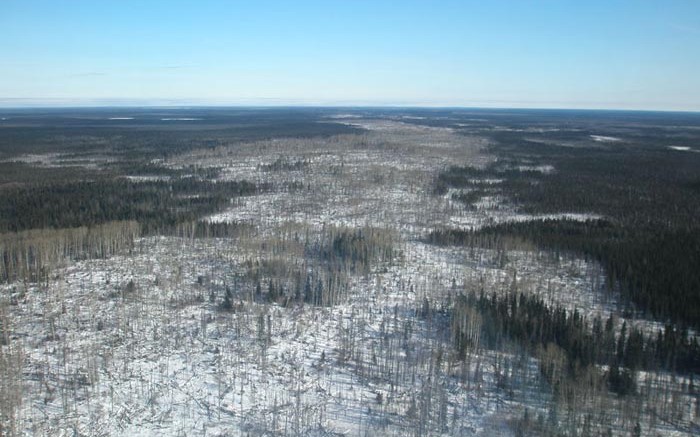Base metal mining in Canada took another couple of hard blows in late January, as falling base metals price bit deeper and deeper into operations.
• In southeast Yukon, privately held Yukon Zinc is putting its Wolverine high-grade zinc-silver-copper-lead-gold mine on care and maintenance in response to falling metal prices, particularly for silver.
Zinc is trading at US95¢ per lb. at press time, having dipped below US92¢ on Jan. 14 after enduring six months of decline from the US$1.08 per lb. level seen in early August. Over the same period, silver prices have retreated from above US$20 per oz. to their current levels above US$18 per oz., having bottomed below US$16 per oz. in early January 2015.
The underground Wolverine mine is 190 km north of Watson Lake by road and 400 km east of the city of Whitehorse. The on-site mill has a 1,700-tonne-per-day capacity, with concentrate trucked to Stewart, B.C.
Two Chinese firms, Jinduicheng Molybdenum Group and Northwest Nonferrous International Investment, took over publicly traded Canadian junior Yukon Zinc in July 2008, and took the asset private. The pair brought Wolverine into production in 2011 with the help of mining contractor Procon Mining & Tunnelling.
Full production was briefly achieved in March 2013 with staffing of 300, before around 100 people were laid off several months later — some of whom were recalled in September 2013.
As a privately held company run out of China, up-to-date public information on the company and Wolverine is sparse, but the mine was said to employ 288 people in mid-2014, and layoffs are expected for most employees, except those retained for care and maintenance duties.
The operator expects the closure to last at least three months, and says more information and an official statement is pending. So far, the company has only notified its suppliers of the suspension in a letter, and says it will update suppliers by Feb. 16.
Wolverine has been one of only two operating mines in the Yukon, the other being Capstone Mining’s 3,850-tonne-per-day, open-pit Minto copper-gold-silver mine located 240 km north of Whitehorse. Alexco Resource built and opened its small, underground Bellekeno silver mine in 2008–10, but suspended production at Canada’s only primary silver mine in 2013.
The territory has plenty of gold potential, with major success in recent years by juniors such as ATAC Resour ces and Kaminak Gold, but none of the projects are nearing commercial production in the near term.
• Things are equally as grim at the other end of Canada in light of Cleveland-based iron ore and coal major Cliffs Natural Resources filing for creditor protection on Jan. 27 for its Canadian arm, including its shuttered Canadian flagship Bloom Lake operations in the Labrador Trough.
It’s the third major U.S. firm seeking bankruptcy for its Canadian subsidiary in recent months, with U.S. Steel and retailer Target following similar strategies.
Cliffs’ move is widely seen as being carried out to limit the cost of closing Bloom lake — which has been pegged as high as US$700 million — and shares in Cliffs jumped 10% following the bankruptcy filing announcement.
Cliffs said it had attracted interest from potential buyers in Bloom Lake, but had not been able to seal a deal.
Cliffs spent US$4.3 billion buying Bloom Lake via its takeover of Consolidated Thompson Iron Mines in 2011.
Last November Cliffs scrapped plans for a US$1.2-billion expansion of Bloom Lake, as iron ore prices crashed and potential investors and development partners disappeared.
The company already booked a US$4.5-billion impairment charge on its Bloom Lake operations in last year’s third quarter.
In the junior scene in Canada, there will be keen interest in perhaps getting a fire sale price for two of Cliffs’ large grassroots projects: its Ring of Fire chromite assets in northern Ontario and its Decar nickel-iron project in central B.C., the latter of which is a joint venture with First Point Minerals.




Be the first to comment on "Editorial: Base metal woes in Canada’s north"